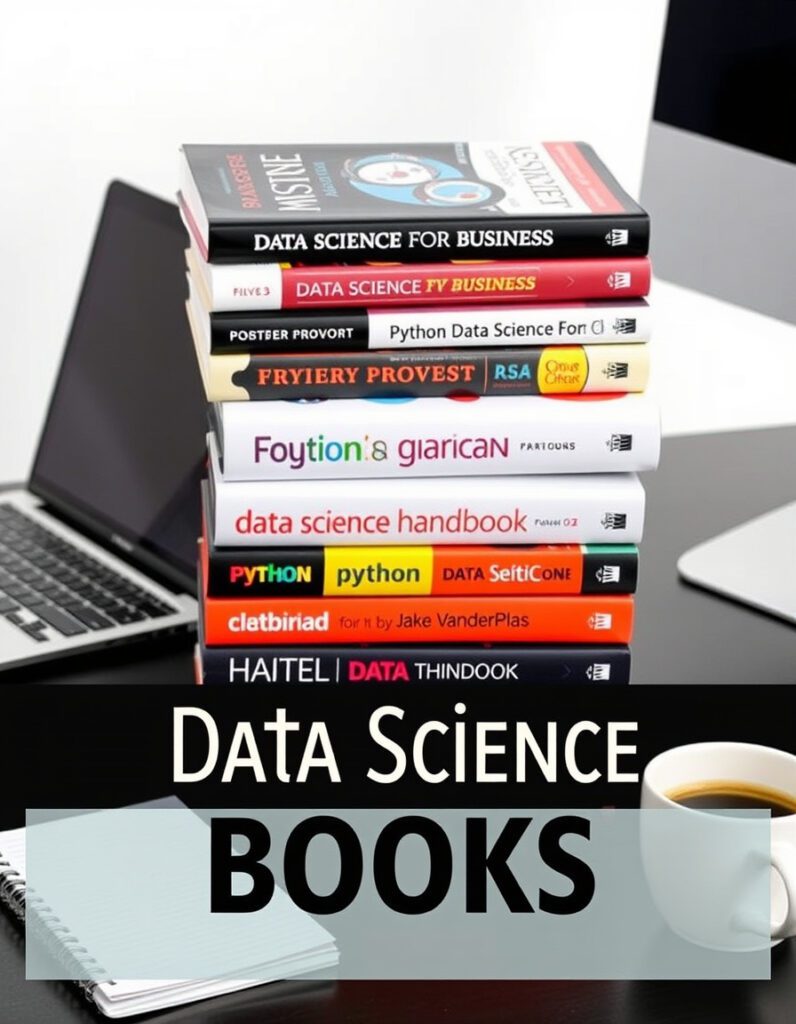Introduction
Data science has emerged as one of the most sought-after and lucrative career paths for new graduates. If you’re wondering how to launch your data science career for new grads, this ultimate guide will provide you with all the essential steps and insights to kickstart your journey in this dynamic field. With the exponential growth of data and the increasing demand for data-driven insights, the field of data science offers unparalleled opportunities for those looking to embark on a rewarding and impactful career.
Assess Your Fit: Exploring the Data Science Mindset
Before diving into the specifics of launching your data science career for new grads, it’s essential to evaluate whether you possess the necessary skills and mindset to thrive in this dynamic field. Data science requires a unique blend of technical expertise, analytical thinking, and problem-solving abilities.
Cultivate a Curious and Analytical Mindset
Successful data scientists are driven by a deep curiosity to uncover insights hidden within data. They possess a keen eye for detail, an analytical approach to problem-solving, and a willingness to explore new techniques and technologies. Cultivating a mindset geared towards continuous questioning and exploration is crucial for those wondering how to launch your data science career for new grads. Understanding the real-world impact of your work and having a passion for leveraging data to solve complex problems are key components of a successful data science career.
Develop Strong Technical Skills
Proficiency in programming languages, such as Python and R, is a fundamental requirement for data scientists. These languages are widely used for data manipulation, analysis, and visualization. Additionally, a solid understanding of statistical methods, machine learning algorithms, and data visualization techniques is crucial. Familiarity with libraries and frameworks like Pandas, Scikit-learn, TensorFlow, and Keras can significantly enhance your skill set.
- Python: Known for its versatility and readability, Python is essential for data manipulation, statistical analysis, and machine learning. Libraries like NumPy, Pandas, and Matplotlib are commonly used.
- R: R is particularly strong in statistical analysis and data visualization. It is favored for its extensive packages and its ability to handle complex statistical models.
Embrace Continuous Learning
The field of data science is constantly evolving, with new tools, techniques, and best practices emerging regularly. Successful data scientists are committed to continuous learning, staying up-to-date with industry trends and expanding their knowledge and skills. Engage with online communities, attend workshops, and participate in webinars to keep your skills sharp and relevant. Platforms like DataCamp, Coursera, and Udacity offer advanced courses in specialized areas such as deep learning, natural language processing, and big data analytics.
- DataCamp: Offers interactive courses on data science, machine learning, and AI.
- Coursera: Provides courses from top universities and institutions, covering a wide range of data science topics.
- Udacity: Features nanodegrees in data science with a focus on project-based learning.
Navigating the Educational Landscape
There are several pathways to acquire the necessary skills and qualifications for a data science career. Explore the options that best suit your learning style and career goals.
Pursue a Relevant Degree

Many universities offer specialized data science programs, ranging from bachelor’s to master’s degrees. These programs provide a comprehensive education in the core principles and applications of data science, including data analysis, statistical modeling, and machine learning. Notable programs include:
- Master’s in Data Science: Provides in-depth knowledge of data analysis, machine learning, and data engineering.
- Bachelor’s in Computer Science with a focus on Data Science: Offers foundational knowledge in programming and data analysis.
Enroll in Online Courses and Bootcamps
For those seeking a more flexible and accelerated learning experience, online courses and data science bootcamps can be excellent alternatives. These programs often focus on practical, hands-on training to develop job-ready skills. Institutions like General Assembly, DataCamp, and Springboard offer intensive programs that can help you gain expertise quickly. Additionally, specialized bootcamps like Insight Data Science and Flatiron School provide targeted training in data science skills.
- General Assembly: Offers immersive bootcamps in data science with real-world projects.
- Springboard: Provides data science courses with personalized mentorship and job guarantees.
- Insight Data Science: Specializes in transitioning PhDs into data science roles through a 7-week program.
Leverage Free Online Resources
The internet is a treasure trove of free resources, including tutorials, webinars, and open-source datasets, that can help you build a strong foundation in data science. Platforms like Coursera, Udemy, and edX offer a wide range of courses to supplement your learning. Additionally, websites like Kaggle provide datasets and competitions that allow you to practice and showcase your skills.
- Kaggle: A platform offering data science competitions, datasets, and community discussions.
- GitHub: A repository for open-source projects where you can collaborate and showcase your work.
Building a Competitive Portfolio

Developing a strong portfolio is crucial in showcasing your data science skills and experience to potential employers. Engage in projects that demonstrate your ability to tackle real-world problems and showcase your problem-solving prowess.
Participate in Hackathons and Competitions
Joining data science hackathons and competitions not only allows you to apply your skills in a practical setting but also provides opportunities to network with industry professionals and gain valuable feedback. Platforms like Kaggle and DrivenData regularly host competitions that can help you build a portfolio of impactful projects.
- DrivenData: Hosts data science competitions focused on social impact.
Contribute to Open-Source Projects
Collaborating on open-source data science projects can help you build a reputation, gain practical experience, and demonstrate your commitment to the field. Contributing to projects on platforms like GitHub can also enhance your visibility within the data science community.
- GitHub Projects: Contributing to repositories can demonstrate your skills and commitment to the field.
Showcase Your Work through Personal Projects
Undertake personal data science projects that align with your interests and passions. These projects can range from analyzing public datasets to building predictive models for specific industries. Documenting your work through detailed blogs or GitHub repositories can further demonstrate your skills to potential employers. Examples of impactful personal projects include:
- Predictive Modeling: Building models to predict future trends based on historical data.
- Sentiment Analysis: Analyzing social media data to gauge public sentiment on various topics.
Navigating the Job Market
As you prepare to enter the job market, it’s essential to understand the various data science roles and the skills required for each.
Explore Different Data Science Roles
From data analysts and data engineers to machine learning specialists and business intelligence experts, the data science field offers a diverse range of career paths. Here’s a brief overview of common roles:
- Data Analyst: Focuses on interpreting data to provide actionable insights. Common tasks include data cleaning, reporting, and visualization.
- Data Engineer: Specializes in building and maintaining data pipelines and architectures. Key skills include SQL, ETL processes, and cloud platforms like AWS or Azure.
- Machine Learning Engineer: Develops and deploys machine learning models. Requires expertise in algorithms, programming, and model optimization.
- Business Intelligence (BI) Analyst: Analyzes data to support business decisions. Skills include data visualization tools like Tableau and Power BI.
Research Companies Hiring for Data Science Roles
Several companies are actively hiring data scientists across various industries. Here are a few notable examples:

- Google: Frequently hires data scientists to work on product analytics, search algorithms, and machine learning.
- Facebook (Meta): Employs data scientists for roles involving user behavior analysis, ad targeting, and AI research.
- Amazon: Looks for data scientists to optimize logistics, customer experience, and recommendation systems.
- Microsoft: Offers opportunities in data science for cloud services, AI, and enterprise analytics.
- IBM: Focuses on data science roles for AI development, analytics, and consulting.
Craft a Compelling Resume and Portfolio
Tailor your resume to highlight your data science skills, relevant coursework, and any practical experience you’ve gained. Accompany your resume with a well-curated portfolio that showcases your projects and achievements. Use strong action verbs and quantify your accomplishments where possible to make your resume stand out. Ensure that your portfolio includes:
- Project Descriptions: Detailed explanations of your projects, including objectives, methodologies, and outcomes.
- Technical Skills: A list of programming languages, tools, and techniques you are proficient in.
Leverage Your Network and Connections
Networking is a powerful tool in the job search process. Reach out to industry professionals, attend data science meetups and conferences, and leverage your academic and personal connections to uncover potential job opportunities. Platforms like LinkedIn can be valuable for connecting with professionals and joining relevant groups.
- LinkedIn: Use it to connect with industry professionals, join relevant groups, and stay updated on job postings.
- Meetups and Conferences: Attend data science events to network with professionals and learn about industry trends.
Embrace the Data Science Journey
Launching a successful data science career for new grads is a journey filled with continuous learning, challenges, and opportunities for growth. Embrace the process, stay curious, and be prepared to adapt to the ever-evolving landscape of data science. By following these steps and maintaining a proactive approach to learning and networking, you’ll be well-equipped to navigate the exciting world of data science and achieve your career goals.
Data science is not just a career; it’s a journey of exploration and discovery. With the right mindset, skills, and strategies, you can turn your passion for data into a successful and fulfilling career.
Emerging Trends in Data Science
Stay ahead of the curve by exploring the latest advancements in data science. This section will cover emerging technologies such as artificial intelligence (AI), machine learning (ML), and deep learning, and how they are shaping the future of data science.
Key Certifications for Data Scientists
Certifications can significantly enhance your credibility and job prospects. Discover which certifications are most valued in the industry, including those from AWS, Microsoft, and Google, and how they can benefit your career.
Top Data Science Tools and Technologies
A comprehensive understanding of the tools and technologies used in data science is essential. Learn about essential software and platforms like Tableau, SQL, and Hadoop, and how they contribute to effective data analysis and visualization.
Navigating Data Science Specializations
Data science offers various specializations, each with its own focus and requirements. This section explores different paths such as data engineering, data visualization, and big data analytics, helping you determine which specialization aligns with your career goals.
Success Stories from Data Science Professionals
Gain inspiration from real-life success stories and interviews with data science professionals who have made significant strides in the field. Their experiences can provide valuable insights and motivation for new grads entering the industry.
Networking Strategies for Data Science Careers
Effective networking can open doors to new opportunities and collaborations. Discover strategies for networking within the data science community, including attending conferences, joining professional organizations, and participating in online forums and communities.
Balancing Technical and Soft Skills in Data Science
While technical skills are crucial, soft skills such as communication and teamwork are also important. Learn how to balance and develop both sets of skills to excel in your data science career and work effectively within teams.
Understanding the Data Science Job Market
Get a clear picture of the current job market for data science professionals. This section covers demand trends, salary expectations, and growth opportunities, providing valuable information to help you navigate your career path.
Preparing for Data Science Interviews
Interviews for data science roles can be rigorous and multifaceted. Find out how to prepare effectively, including common interview questions, case studies, and technical assessments that may be part of the process.
Building a Data Science Brand Online
Establishing a strong online presence can set you apart from other candidates. Learn how to build your data science brand through blogging, contributing to data science communities, and showcasing your work on platforms like GitHub and LinkedIn.
Industry-Specific Applications of Data Science
Healthcare

Data science is driving significant advancements in healthcare. Personalized medicine, which tailors treatment plans based on individual patient data, is a prime example. Data scientists analyze genetic information, lifestyle factors, and medical history to develop personalized treatment strategies. Predictive models are also used to forecast disease outbreaks and patient admissions, allowing for better resource allocation. Additionally, data visualization tools help in tracking patient progress and identifying trends in public health data.
Finance
In the finance sector, data science is crucial for fraud detection, risk management, and algorithmic trading. Financial institutions use machine learning models to detect unusual transaction patterns indicative of fraud. These models analyze historical transaction data, user behavior, and external factors to flag potentially fraudulent activities. Risk management also benefits from data science, with models predicting market fluctuations and assessing credit risks. Algorithmic trading uses sophisticated algorithms to execute trades based on real-time data analysis, optimizing trading strategies and maximizing returns.
Retail
Retail companies leverage data science for customer segmentation, sales forecasting, and supply chain optimization. By analyzing purchase history, browsing behavior, and social media interactions, retailers create detailed customer profiles. This information is used to personalize marketing efforts and improve customer experiences. Sales forecasting models predict future demand based on historical sales data, seasonality, and market trends, helping retailers optimize inventory levels and reduce waste. Data science also enhances supply chain efficiency by analyzing logistics data and optimizing delivery routes.
Sports
In sports, data science enhances performance analysis, injury prediction, and game strategy. Teams use data analytics to evaluate player performance, track physical metrics, and analyze game statistics. Predictive models forecast injury risks based on player data, training regimens, and previous injuries. Data science also aids in developing game strategies by analyzing opponents’ tactics and performance metrics. This approach enables teams to make data-driven decisions, improve performance, and gain a competitive edge.
Ethical Considerations in Data Science
Data Privacy
Protecting user data is paramount in data science. Adhering to privacy regulations such as GDPR (General Data Protection Regulation) and CCPA (California Consumer Privacy Act) ensures that personal information is handled responsibly. Data scientists must implement techniques like data anonymization and encryption to safeguard sensitive information. Transparency in data collection practices and providing users with control over their data are also essential for maintaining privacy and trust.
Bias in Algorithms
Bias in algorithms can lead to unfair outcomes and perpetuate existing inequalities. Data scientists must be aware of potential biases in their models, which can arise from skewed training data or biased assumptions. To mitigate bias, it’s important to use diverse datasets, implement fairness-aware algorithms, and regularly evaluate model performance across different demographic groups. Addressing bias ensures that data science solutions are equitable and inclusive.
Responsible Data Use
Data scientists have a responsibility to use data ethically and avoid harm. This includes ensuring that data-driven decisions do not negatively impact individuals or communities. Transparency in data usage, accountability in model outcomes, and adherence to ethical guidelines are crucial for responsible data science practices. Data scientists should also consider the broader societal implications of their work and strive to use data for positive impact.
Career Development Resources
Industry Conferences
Attending industry conferences is a valuable way to stay updated on data science trends and network with professionals. Notable conferences include the Data Science Summit, where experts discuss emerging technologies and methodologies, and the Strata Data Conference, which focuses on big data and analytics. These events provide opportunities to learn from industry leaders, participate in workshops, and explore the latest tools and techniques in data science.
Webinars and Workshops
Webinars and workshops offer flexible learning opportunities on specialized data science topics. Platforms like DataCamp and Kaggle host webinars on machine learning, data visualization, and statistical analysis. Workshops provide hands-on experience with data science tools and techniques, allowing participants to apply their skills in practical scenarios. Engaging in these educational events helps build expertise and stay current with industry developments.
Professional Organizations
Joining professional organizations such as the Data Science Association or the International Institute of Business Analysis (IIBA) can enhance career development. These organizations offer resources like networking events, industry publications, and professional certifications. Membership provides access to a community of data science professionals, career support, and opportunities for continuing education.
Salary Insights and Career Progression
Entry-Level Salaries
Entry-level salaries for data science positions vary based on location, industry, and company size. Data analysts and junior data scientists typically earn competitive salaries, with averages ranging from $60,000 to $80,000 annually in major tech hubs. Factors such as educational background, technical skills, and relevant experience influence salary levels. Researching salary data and industry benchmarks helps new grads set realistic expectations and negotiate offers.
Mid-Level and Senior Roles
As data scientists gain experience, they can advance to mid-level and senior roles with increased responsibilities and higher salaries. Positions like senior data scientist, data science manager, and lead data scientist offer opportunities for career growth. Salaries for these roles can range from $90,000 to $150,000 or more, depending on experience and location. Continuous skill development, leadership abilities, and successful project outcomes contribute to career progression and higher earning potential.
Career Pathways
Data science offers diverse career pathways, from technical roles to leadership positions. Common career trajectories include moving from data analyst to data scientist, and then to senior roles such as data science manager or Chief Data Officer (CDO). Each career stage requires specific skills and experiences, such as advanced data analysis techniques, project management, and strategic decision-making. Planning a career path and setting goals helps guide professional development and achieve long-term success.
Interactive Elements
Self-Assessment Quiz
A self-assessment quiz can help readers evaluate their readiness for a data science career. The quiz may cover areas such as technical skills, analytical thinking, and interest in data science projects. Providing feedback based on quiz results can guide readers in identifying their strengths and areas for improvement.
Practice Projects
Engaging in practice projects is crucial for building data science skills. Suggested projects include analyzing publicly available datasets, developing predictive models, and creating data visualizations. Platforms like Kaggle offer a variety of datasets and project challenges to work on, allowing readers to apply their skills and build a strong portfolio.
Recommended Books and Learning Materials
Books

Recommended books for aspiring data scientists include “Data Science for Business” by Foster Provost and Tom Fawcett, which provides a comprehensive overview of data science applications in business, and “Python Data Science Handbook” by Jake VanderPlas, which offers practical guidance on using Python for data analysis and machine learning. These resources provide valuable insights and practical knowledge for career development.
Research Papers
Key research papers on foundational data science topics, such as machine learning algorithms and data visualization techniques, are essential for deepening understanding. Notable papers include “A Few Useful Things to Know About Machine Learning” by Pedro Domingos and “The Elements of Statistical Learning” by Trevor Hastie, Robert Tibshirani, and Jerome Friedman. These papers offer in-depth analyses of key concepts and advancements in the field.
Online Courses
Reputable online courses and MOOCs, such as those offered by Coursera, edX, and Udacity, provide comprehensive training in data science. Courses like “Machine Learning” by Andrew Ng and “Data Science MicroMasters” by UC San Diego cover essential topics and provide certifications that enhance job prospects. Enrolling in these courses helps build a solid foundation in data science and demonstrates commitment to learning.
Data Science Communities and Forums
Reddit
Reddit communities such as r/datascience and r/MachineLearning are valuable for discussing data science topics, seeking advice, and sharing knowledge. Engaging in these communities allows readers to connect with fellow data scientists, stay updated on industry trends, and access resources and tutorials.
LinkedIn Groups
LinkedIn groups like Data Science Central and Analytics Vidhya offer networking opportunities and discussions on data science trends and best practices. Joining these groups helps readers connect with industry professionals, participate in discussions, and access job postings and career resources.
Specialized Forums
Specialized forums such as Data Science Stack Exchange and Kaggle forums provide platforms for asking questions, sharing insights, and collaborating on projects. These forums are ideal for seeking solutions to specific problems, learning from experienced data scientists, and participating in data science challenges.
Success Metrics for Data Science Projects
Key Performance Indicators (KPIs)
KPIs such as accuracy, precision, recall, and F1 score are crucial for evaluating the performance of data science models. Accuracy measures the proportion of correct predictions, precision and recall assess model effectiveness in specific classes, and F1 score balances precision and recalls
Frequently Asked Questions
1. What qualifications are typically required to start a career in data science?
To launch a career in data science, new grads generally need a strong foundation in mathematics and statistics, along with proficiency in programming languages such as Python and R. Most entry-level positions require a bachelor’s degree in a related field such as computer science, data science, mathematics, or engineering. Advanced positions may require a master’s degree or higher. Additionally, practical experience through internships, personal projects, or bootcamps can significantly enhance your qualifications.
2. What are some key skills I should focus on to excel in data science?
Key skills for data science include:

- Programming: Proficiency in languages like Python and R for data manipulation and analysis.
- Statistical Analysis: Understanding statistical methods to interpret data accurately.
- Machine Learning: Familiarity with machine learning algorithms and frameworks for predictive modeling.
- Data Visualization: Ability to create clear and insightful visualizations using tools like Tableau or Matplotlib.
- Data Wrangling: Skills in cleaning and preparing data for analysis.
- Big Data Technologies: Knowledge of big data platforms like Hadoop and Spark can be beneficial for handling large datasets.
3. How important is having a strong portfolio for getting hired in data science?
A strong portfolio is crucial for demonstrating your practical skills and experience to potential employers. It should include a variety of projects that showcase your ability to tackle real-world problems. Projects could involve analyzing public datasets, building machine learning models, or creating data visualizations. Ensure that your portfolio is well-organized, with detailed descriptions of each project, the tools and techniques used, and the outcomes achieved. An impressive portfolio can set you apart from other candidates and provide tangible evidence of your capabilities.
4. Which companies are known for hiring data scientists and what roles do they typically offer?
Several companies are prominent in hiring data scientists across various industries. Some notable ones include:
- Google: Offers roles such as Data Scientist, Machine Learning Engineer, and Research Scientist. Responsibilities often include working on search algorithms, user behavior analysis, and AI projects.
- Facebook (Meta): Hires for positions like Data Scientist, Data Analyst, and Research Scientist, focusing on user data analysis, ad targeting, and AI research.
- Amazon: Roles include Data Scientist, Business Intelligence Engineer, and Machine Learning Scientist, with responsibilities in optimizing logistics, improving customer experience, and developing recommendation systems.
- Microsoft: Employs Data Scientists for cloud analytics, AI development, and enterprise solutions.
- IBM: Offers roles in Data Science for AI development, data analytics, and consulting services.
5. What are some effective ways to stay updated with the latest trends and advancements in data science?
Staying updated with the latest trends and advancements in data science is essential for continuous growth. Here are some effective ways to do so:
- Online Courses and Certifications: Enroll in courses on platforms like Coursera, DataCamp, or Udacity to learn about new tools and techniques.
- Industry Blogs and Journals: Follow reputable data science blogs, such as Towards Data Science and Analytics Vidhya, and read academic journals for the latest research.
- Professional Conferences: Attend data science conferences and meetups to network with professionals and learn about industry developments.
- Networking: Join data science communities on LinkedIn and participate in online forums and groups to exchange knowledge with peers.
- Podcasts and Webinars: Listen to data science podcasts and attend webinars to hear from industry experts and gain insights into emerging trends.


